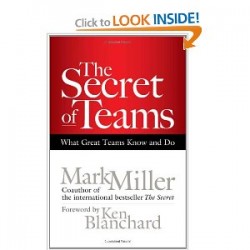So maybe you read half a dozen human resources blogs, or maybe this is the only one you follow. Why do people write human resources blogs? What’s the point?
Well, I can’t speak for everyone, but I can give you some insight into why I write (and read) blogs about human resources every week.
Human resources blogs and my career
 Why in the heck would someone start an HR blog?
Why in the heck would someone start an HR blog?
Good question.
I started writing this blog four years ago as a way to help others just getting into HR. I wanted to share what I was learning, offer advice to common problems, and get some accountability for myself beyond the four walls of my employer.
And boy have those come true.
The blog has helped me immensely. It was a factor in getting my current job to some degree. It wasn’t a golden ticket or anything, but it also wasn’t completely ignored in the hiring process. I can still remember the president of the company sitting there at his desk and scrolling through my blog while I was being interviewed.
It has opened up doors to partner with great companies and people in so many ways. It has broken down barriers that would have prevented me from connecting and networking with peers around the world. It helped to launch one of the first HR unconference events. It’s just been amazing, frankly.
But that only covers the past four years. What does the future hold? I have no idea, but I’m incredibly excited.
The purpose of human resources blogs
I think the people who take the time and effort to write HR blogs are doing a great service to the profession. For too long “personnel” was seen as a barrier to getting things done. HR pros taking the time to share unique and interesting ideas are helping to shape the future of our profession. Here are two key ways that’s happening:
- Transparency-HR as a profession has long been sequestered from the rest of the organization. In those circumstances, it’s no surprise that business leaders, line management, and staff workers don’t have much faith in HR. They don’t know what HR does! Sure, they know we help to recruit people and help with terminating the bad ones. But the gap between hiring and firing, the employee lifecycle, is where HR can truly shine. The blogs out there that are sharing what HR truly does on a daily basis are the ones that are the most popular. No surprise there.
- Insights-A corollary to the previous point is the insight that we can provide. We talk about what we are doing, because we’ve been influenced by others doing the same thing. If you stop for a second, you can probably think of an HR person somewhere (maybe a friend or just an acquaintance) who is doing something that you’d like to be doing. They have an innovative program. They have a unique process. They have something that you’d like to learn how to do. Or maybe you just want to make existing processes better–there’s no shame in that. But we share what we share because we want others to benefit from our success. We are also a little selfish in that we want to get the same thing out of it. We want to find new, unique ideas that help us with our own jobs. And that’s okay, too. I’ve yet to meet the person who has it all figured out and needs no help, insight, or encouragement from others.Â
Those two points can’t possibly encapsulate the entire spectrum of HR blogs, but it’s a good place to start.
Human resources blogs and you
So now you know a little more of the “why” behind human resources blogs. So how can you use them?
This post I wrote a year ago about human resource challenges is a great example of how you can take what you’re reading and put it into effect in your own life and career. I also included a similar challenge in the entry level HR course for those new to the profession. I wanted them to understand that HR blogs are not just for entertainment–they’re also for learning new concepts and forcing our brains to think differently about the problems we’re faced with.
I talk with readers via email every single week. They are trying to implement ideas they learned about on this blog, and I’m all too happy to converse with them about how to customize the topics to their unique situations. They are the ones who are truly benefiting from the HR blogs out there.
I know that 99+% of you are not interested in starting an HR blog. And that’s just fine. I talked about why HR people don’t blog previously, and I still believe those reasons are true today.
So those are a few of my thoughts on human resources blogs. What are yours? How have they helped you?
A piece of news: I am still working to notify award winners from last week’s contest/survey. I expect to be able to announce each one sometime this week. Thanks to everyone who helped me by taking the survey last week! I truly appreciate it.
 About Horizon Point Consulting, Inc.: Horizon Point Consulting, Incorporated’s mission is to provide career, leadership and workforce coaching and consulting that leads to a passionate and productive workforce.
About Horizon Point Consulting, Inc.: Horizon Point Consulting, Incorporated’s mission is to provide career, leadership and workforce coaching and consulting that leads to a passionate and productive workforce.
 There was plenty of great
There was plenty of great